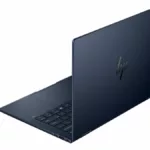Data security has become essential for organizations that process or store customer and employee data.
Data breaches continued to hit large organizations like Yahoo!, eBay, and LinkedIn in 2018, but they’ve also increasingly targeted smaller businesses in recent years. Increasingly tighter regulations imposed by the EU and other governments has made data security something that businesses of any size have to take seriously.
In this article, we’ll take a look at some important ways to ensure your company’s data security as it relates to Voice over Internet Protocol (VoIP) services.

Encrypt Data Both in Transit and in Storage
One of the best ways to protect data privacy is to prevent data from being used if it’s stolen or intercepted by a malicious party. Strong end-to-end encryption accomplishes that goal by scrambling your data with a mathematical code that is nearly impossible to break without a private key.
Encryption renders your data useless to anyone other than the intended recipient. If data security is essential to your business model, then using encrypted VoIP services should be part of any comprehensive security plan.
Sending and receiving encrypted data is only one half of the encryption story, though. It’s also important to encrypt sensitive data that’s stored in backups or on data servers. This protects your organization in the event of a data breach. Hackers might break into your local network, but if they aren’t able to decrypt the data they steal, your data privacy won’t be violated.
Avoid Using Public Wi-Fi Networks
Many locations ranging from airports to coffee houses offer their patrons public Wi-Fi access to the internet. While these services can be convenient for your employees when they travel, they should avoid them whenever handling sensitive company or personal data.
Hackers can target users at these locations with man-in-the-middle attacks that either eavesdrop on internet traffic or spoof public Wi-Fi servers with their own fake access point.
The best advice you can give your employees is to simply not engage in company business using public Wi-Fi networks. If they do, limit them to connecting only to public Wi-Fi networks that require a WPA password. This makes it much more difficult for hackers to use man-in-the-middle attacks.
Control Where Your Internal Communication Data Goes
Many businesses today are eager to leverage the collaboration tools that messaging, video conferencing, and unified communications offer. Many of the providers of these services, however, use servers outside of your local area network to conduct communications between your employees and customers.
Employees in the same office building using a video conferencing app can inadvertently send sensitive data to third party servers that change from one session to the next. This lack of control over where your data goes during communications can create a security risk.
One solution to this problem is to use collaboration tools designed to avoid using off-site servers. Another solution is to contract with a service provider that uses dedicated servers that ensure your data’s security.
Protect Your Data from Loss Due to Disasters
Eavesdropping and theft are two ways that your data security can be breached, but there’s another risk that companies should consider: Natural and man-made disasters.
Fires, floods, power outages, and other unforeseen events can destroy physical hardware that stores valuable data. If your organization currently has a single on-site data center or contracts with service providers that use a single location for data storage, it could represent a risk if that the location should suffer a catastrophic event.
Many service providers today mitigate these risks by maintaining more than one service center. Each location is a mirror of customer data and service capacity. If one location is disabled, a second or third can step into its place. This doesn’t just protect their clients from losing valuable data; it also prevents service outages.
Keep Your Data Inside the Country
Eavesdropping threats aren’t limited to criminal hackers. The reality is that many countries like the United States collect data transmitted over their internet infrastructure for counter-terrorism and foreign espionage purposes.
Many medical, governmental, and legal enterprises need to be aware of where their data travels during VoIP sessions to ensure that they aren’t subject to eavesdropping by foreign governments. The surest way to prevent this possibility is to contract with a VoIP provider than uses a private network to deliver their services.
A good example of this is the private network option offered by Epik Networks through their Fiber Optic Internet service. Private networks give your organization access to the internet without the worry of sending data or voice calls to third parties outside the country.








